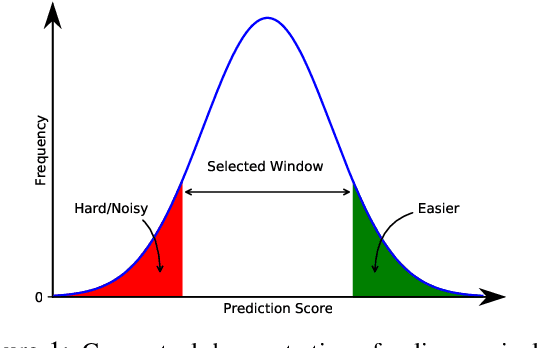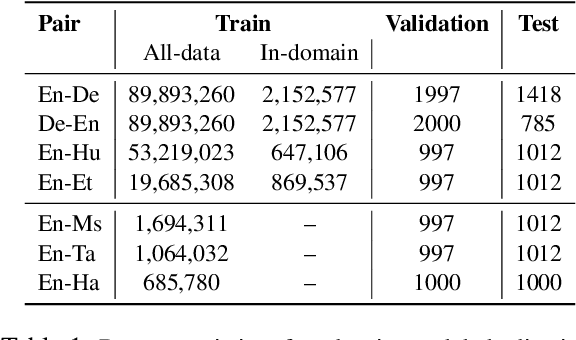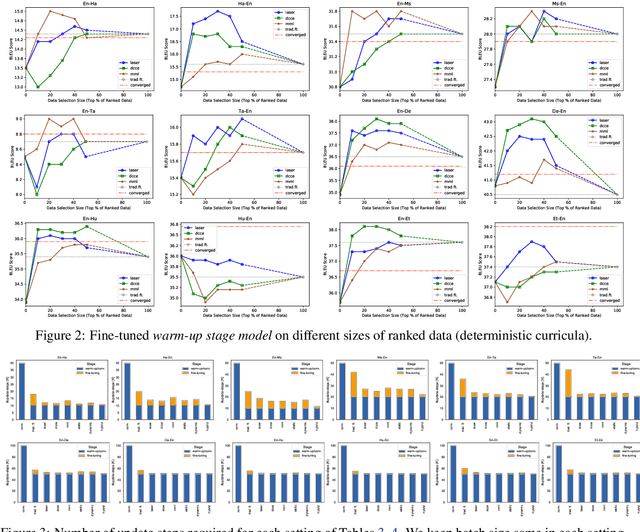Data Selection Curriculum for Neural Machine Translation
Paper and Code
Mar 25, 2022



Neural Machine Translation (NMT) models are typically trained on heterogeneous data that are concatenated and randomly shuffled. However, not all of the training data are equally useful to the model. Curriculum training aims to present the data to the NMT models in a meaningful order. In this work, we introduce a two-stage curriculum training framework for NMT where we fine-tune a base NMT model on subsets of data, selected by both deterministic scoring using pre-trained methods and online scoring that considers prediction scores of the emerging NMT model. Through comprehensive experiments on six language pairs comprising low- and high-resource languages from WMT'21, we have shown that our curriculum strategies consistently demonstrate better quality (up to +2.2 BLEU improvement) and faster convergence (approximately 50% fewer updates).
 Add to Chrome
Add to Chrome Add to Firefox
Add to Firefox Add to Edge
Add to Edge